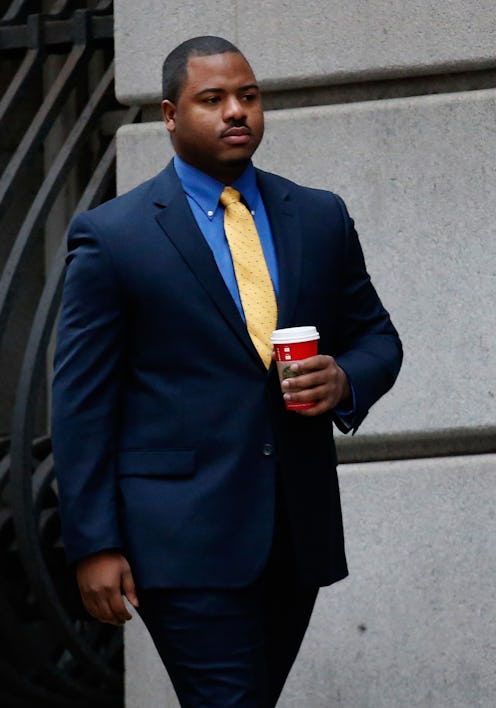News
Why William Porter's Trial Was Declared A Mistrial
On Wednesday, the first of six Baltimore police officers criminally charged for the death of Freddie Gray learned of his legal fate. And from his perspective, it was a favorable outcome, if a temporary one — a mistrial was declared in the case of Officer William Porter of the Baltimore Police Department, meaning the prosecution will have to determine whether to move ahead with another trial against him. But maybe you're not so familiar with the judicial system, and that sounds a little bizarre, and you're wondering why did the William Porter trial end up a mistrial?
Here's the simple answer: The jury tasked with convicting or acquitting Porter couldn't come to a unanimous agreement about his guilt on any of the four charges against him: manslaughter, second-degree assault, reckless endangerment, and misconduct. This is commonly known as a "hung jury," or a "deadlocked" one, and it means that the trial can't proceed.
To be clear, it doesn't mean that Porter's been acquitted or in any way exonerated, beyond whatever boost it might give him in the so-called "court of public opinion." Rather, he could face a retrial, assuming State's Attorney Marilyn Mosby decides to go that route. The date for a new trial could reportedly be set on Thursday.
So, what does this mean for the Freddie Gray case as a whole? Importantly, it has no bearing on any of the other five officers charged in relation to his death. All of the officers are being tried separately, which means Porter's mistrial has no effect on anyone else's legal futures.
But it does indicate that at least one person on jury struggled to find Porter guilty of criminal wrongdoing, which speaks to the high standards of certainty you have to consider when waiting on a jury. Remember, if just one person out of 12 disagrees with the prevailing opinion, and they're certain and strong-willed enough about it to not back down, a mistrial is precisely what happens. If the juries for the other five officers face the same dilemma, we could see mistrials there, as well.
So far, there hasn't been any information made public about how many jurors wanted to convict Porter, and how many wanted to acquit him. If and when those numbers are learned, that'll probably be a more meaningful indication of how the prosecution's case is going so far. It figures to be a much steeper challenge to convict at least one of these officers, thanks to a much steeper charge — Officer Caesar Goodson Jr. faces the sole murder charge, one count of second-degree depraved heart murder, carrying a potential sentence of 30 years.
